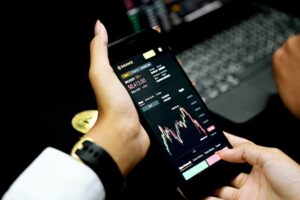The Importance of Following an Economic Calendar for Forex Trading Strategies
Forex trading is a highly dynamic and fast-paced market that involves the buying and selling of different currencies. Traders in this market need to constantly stay updated with the latest news and economic events that can impact currency values. One of the most effective tools that traders use to stay ahead in the forex market is an economic calendar.
An economic calendar is a schedule of important economic events and data releases that can influence the forex market. It provides traders with information about upcoming economic reports, such as GDP (Gross Domestic Product), inflation rates, interest rate decisions, employment data, and more. These events can have a significant impact on currency prices, as they reflect the overall health and performance of a country’s economy.
Here are some reasons why following an economic calendar is crucial for forex trading strategies:
1. Timely Information: The forex market is highly sensitive to economic news and data releases. By following an economic calendar, traders can stay informed about upcoming events and plan their trades accordingly. This allows traders to be prepared for potential market movements and take advantage of trading opportunities.
2. Volatility and Liquidity: Economic events often lead to increased volatility and liquidity in the forex market. Volatility refers to the rapid and significant price movements, while liquidity refers to the ability to buy or sell an asset without causing a significant price change. By knowing when major economic events are scheduled, traders can position themselves to take advantage of increased volatility and liquidity, which can lead to more profitable trading opportunities.
3. Fundamental Analysis: Fundamental analysis is a method of evaluating the intrinsic value of an asset by analyzing economic, financial, and other qualitative and quantitative factors. An economic calendar provides traders with the necessary data to conduct fundamental analysis. By understanding the impact of economic events on currency values, traders can make informed decisions based on the underlying economic factors affecting a particular currency pair.
4. Risk Management: Forex trading involves a certain level of risk, and economic events can amplify that risk. By following an economic calendar, traders can identify high-risk events and take appropriate measures to manage their risk exposure. For example, if a central bank is scheduled to announce an interest rate decision, traders can adjust their positions or set stop-loss orders to protect themselves from potential market volatility.
5. Trading Strategies: Economic calendars can be used to develop and fine-tune trading strategies. By analyzing historical data and the impact of economic events on currency values, traders can identify patterns and trends that can help them make profitable trading decisions. For example, some traders may choose to focus on trading certain currency pairs during major economic events, while others may prefer to avoid trading during these times.
In conclusion, following an economic calendar is essential for successful forex trading strategies. It provides traders with timely information, helps them understand market volatility and liquidity, enables fundamental analysis, facilitates risk management, and assists in the development of profitable trading strategies. By staying informed about economic events and their impact on currency values, traders can increase their chances of making profitable trades in the dynamic and ever-changing forex market.





